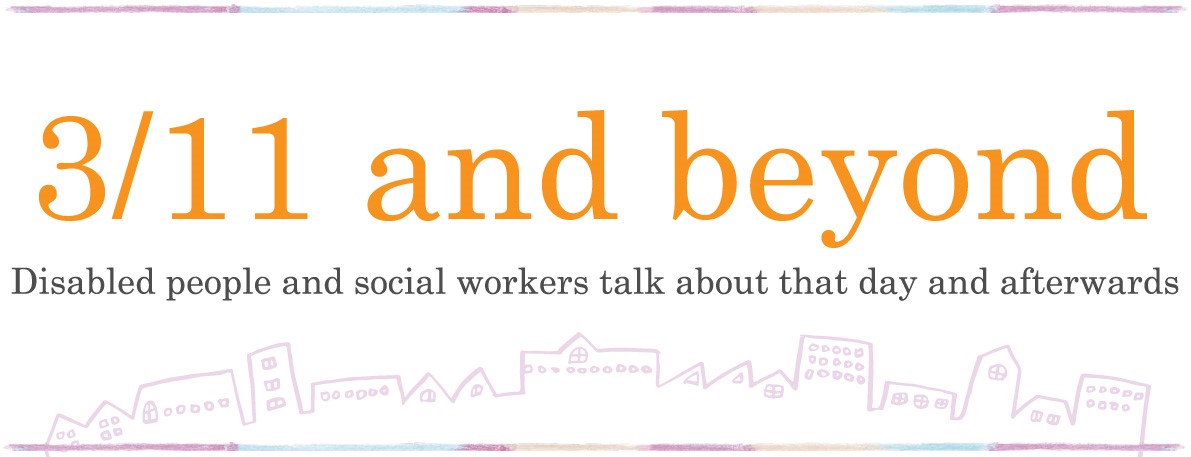Kayoko: There were a lot of people in the region who didn’t know this was a place for people with disabilities. So they thought it was strange that only we (at Kujira no Shippo) were getting special treatment. If there was a problem with the toilets, or they found someone who wasn’t following the rules properly, they would say, “I bet the Kujira no Shippo people did this.”
We didn’t want our trainees to feel hurt hearing all these negative words, so we thought, well there just happen to be toilets in another one of our buildings. We talked about it and decided that although it would be hard for our disabled trainees to walk over there, we would have someone go with them at nighttime to use it. But as we were doing this, the people around us gradually started to understand them (the trainees).
What inspired that understanding?
Kayoko: It was inspired by the shelter meetings we had in the mornings with everyone to determine the rules for managing the building (as a shelter). We had decided to set rules because this was a place everyone was using together. Kujira no Shippo also participated. Our trainees expressed their willingness to clean and do what they could just like everyone else, and when they started working together with the non-disabled people, the prejudice and misunderstanding went away.
But people would say things like, “Oh, so you can talk normally.” It’s really a shock to hear something like that from people who know nothing about disabilities.
I realized a lot of people think people with disabilities can’t do anything in life without help.
For example, once the abled people realized that if you told our trainees to line up and wait their turn, they could wait in line with everyone else, they started asking us to help when they needed more hands to distribute the relief supplies that arrived. Sometimes our staff and trainees would pair up to help, and that helped some people to gradually understand. We were happy when those people started talking to us and gradually losing their prejudice.




